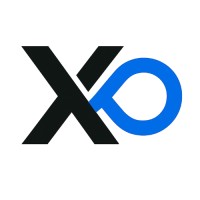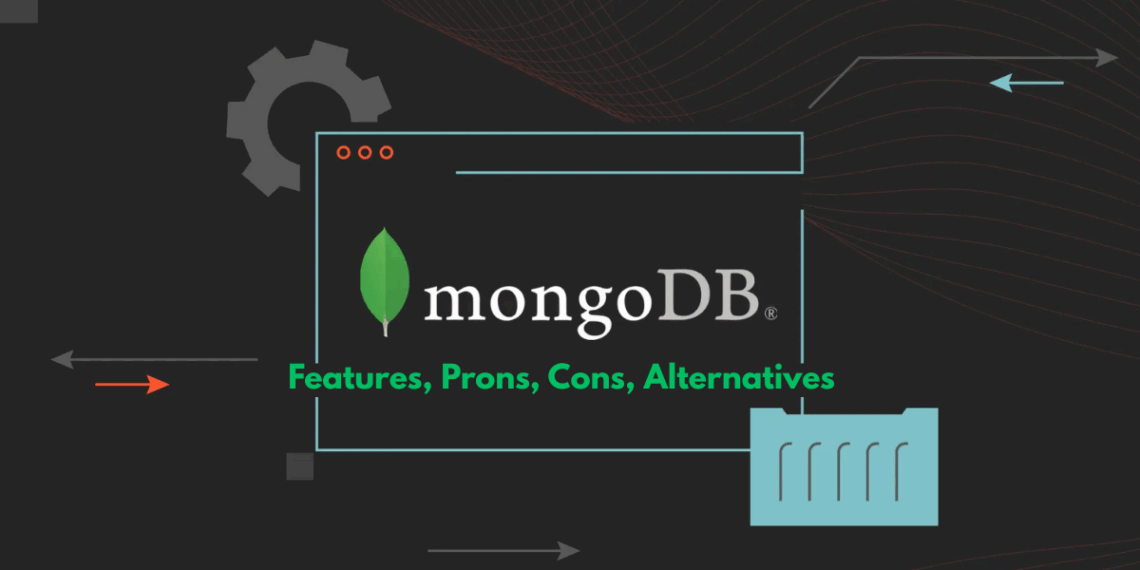For startups navigating rapid growth, picking the right database can make or break your product scalability. As data becomes central to modern applications, startups face the challenge of balancing speed, scalability, and development agility — all while managing costs. In this crowded landscape, MongoDB has emerged as a flexible, developer-friendly NoSQL option for startups building real-time apps, mobile backends, or complex JSON-heavy APIs. Competitors like PostgreSQL, Firebase, and DynamoDB offer compelling alternatives, but each comes with trade-offs.
Whether you’re building your MVP or scaling globally, MongoDB has become one of the most talked-about databases among startup teams. This guide evaluates MongoDB through a startup lens 🌟📊—exploring what makes it powerful, where it might fall short, and how it stacks up against other tools—all to help you decide if it’s the right backbone for your growing product.
MongoDB Overview
For startups navigating rapid growth, picking the right database can make or break your product scalability. ⚡As data becomes central to modern applications, startups face the challenge of balancing speed, scalability, and development agility — all while managing costs. In this crowded landscape, MongoDB has emerged as a flexible, developer-friendly NoSQL option for startups building real-time apps, mobile backends, or complex JSON-heavy APIs 📱. Competitors like PostgreSQL, Firebase, and DynamoDB offer compelling alternatives, but each comes with trade-offs.🌍
🌟Whether you’re building your MVP or scaling globally, MongoDB has become one of the most talked-about databases among startup teams. This guide evaluates MongoDB through a startup lens 📊—exploring what makes it powerful, where it might fall short, and how it stacks up against other tools—all to help you decide if it’s the right backbone for your growing product.
MongoDB Key Features
MongoDB is packed with features that align well with the speed, flexibility, and scaling needs of early-stage startups. Here’s a breakdown of the most impactful ones:
🔢 Flexible Document Model
MongoDB uses BSON (a binary-encoded JSON format) to store data in documents. This makes it ideal for startups iterating fast, as schemas can evolve without database migrations.
📊 Horizontal Scalability via Sharding
MongoDB supports auto-sharding, allowing you to scale data across multiple servers. This is vital when handling growth in traffic and users.
🪡 Built-in High Availability
With replica sets, MongoDB ensures data redundancy and automatic failover. If one node fails, another takes over instantly—boosting uptime.
🚀 MongoDB Atlas (Managed Cloud Service)
Atlas automates provisioning, scaling, monitoring, and backups. Startups can deploy across AWS, GCP, and Azure with just a few clicks.
🌍 Multi-Cloud and Global Clusters
MongoDB Atlas allows clusters to span across multiple cloud providers and regions, enhancing fault tolerance and latency optimization.
🔄 Real-Time Data via Triggers and Change Streams
Use change streams and triggers to build real-time apps. For instance, you can push notifications when data changes.
📱 Realm for Mobile Sync
MongoDB owns Realm, an offline-first mobile database that syncs with Atlas—perfect for building resilient mobile experiences.
🤖 Developer Ecosystem and Language Support
Supports nearly every major language (Python, JS/Node, Go, Java, etc.) with active community, SDKs, and learning resources.

MongoDB Pros and Cons
👍 Pros
- Flexible schema = faster prototyping
- Easy scaling via built-in sharding
- Replica sets for high availability
- Atlas free tier and credits for startups
- Real-time support with triggers/change streams
- Multi-cloud deployment
- Mobile sync with Realm
👎 Cons
- Atlas costs rise sharply at scale
- No native joins (need to use $lookup or embed data)
- Requires discipline to avoid schema sprawl
- Transactions add complexity
- Self-hosted Mongo needs ops expertise
Considering MongoDB for Startups
Before committing to MongoDB, early-stage founders should evaluate a few startup-specific factors that impact database choice:
📌 Is your data flexible or relational?
If your data involves dynamic, nested, or evolving structures—like user-generated content, IoT sensor data, or JSON-based APIs—MongoDB’s schema-less design is ideal. But if you’re dealing with tightly-coupled data models, multi-table joins, or complex reporting across relations, a relational database like PostgreSQL may be better suited.
💰 What’s your budget?
MongoDB Atlas starts with a generous free tier, perfect for prototyping. However, production use with high read/write loads, storage, and backups can get expensive. Startups should track usage metrics and use cost calculators to avoid surprise charges.
🔗 Need integrations?
MongoDB connects seamlessly with most modern tech stacks. It integrates with Kafka, BI tools, cloud functions, and platforms like AWS Lambda. If your product relies on event streaming or analytics, these integrations are a huge plus.
👥 Team experience?
MongoDB is intuitive for JavaScript-native teams (like those using Node.js or MERN). For teams with SQL backgrounds, transitioning to NoSQL may involve a learning curve, especially around aggregation, schema design, and lack of joins.
📈 Scaling needs?
If your startup plans to serve a global audience or anticipates surges in traffic, MongoDB’s support for sharded clusters and multi-region distribution in Atlas can help you scale horizontally with low latency. It’s built for global-scale applications from day one.

MongoDB Plans and Pricing
MongoDB Atlas offers both free and usage-based paid plans. The free tier is suitable for MVPs and early-stage development.
| Plan | Monthly Price per Seat | Key Features |
|---|---|---|
| M0 (Free) | $0 | Shared cluster, 512MB, 100 concurrent conns |
| M2 | ~$9/mo | 2GB storage, better performance |
| M10+ | Starts ~$60/mo | Dedicated clusters, auto-scaling, backups |
MongoDB Startup Discount / Promo Code
MongoDB runs a Startup Program for early-stage companies. Eligible startups can receive $500 in Atlas credits, 1:1 technical mentorship, and access to its developer network. Requirements often include being pre-Series A and building an active product or MVP.
Discounts typically range from 20% to 50% for 6–12 months. MongoDB also provides credits through partner programs like AWS Activate and Google for Startups.
Comparison Table
| Feature | MongoDB | PostgreSQL | Firebase |
|---|---|---|---|
| Free tier🆓 | Yes (Atlas M0) | Yes (limited hosting) | Yes |
| Schema flexibility📈 | High | Low (fixed schema) | High |
| Built-in joins🔎 | No ($lookup instead) | Yes | No |
| Real-time updates⌛ | Yes (Triggers) | No | Yes (Realtime DB) |
| Mobile sync📲 | Yes (Realm) | No | Yes |
| Horizontal scalability💹 | Yes (Sharding) | Difficult | Yes |
| Starting price💵 | $0 (Atlas) | $0 | $0 |

FAQs
❓ Is MongoDB easy to set up for small teams?
Yes. With Atlas, you can spin up a cluster in minutes without ops experience.
❓ Does MongoDB support mobile apps?
Yes. Realm (owned by MongoDB) offers offline-first sync capabilities ideal for mobile devs.
❓ Can MongoDB handle large-scale workloads?
Yes. Its sharding and replica sets allow for global scale and high availability.
❓ Are there any costs beyond the free tier?
Yes. Costs scale with storage, reads/writes, and region. Monitor usage closely.
❓ Can I migrate later if MongoDB doesn’t fit?
Yes, but it may require transformation depending on how you structured documents.
❓ How secure is MongoDB Atlas?
Atlas includes end-to-end encryption, IP whitelisting, VPC peering, and SOC 2 compliance.
Final Thoughts
MongoDB is an agile, scalable database well-suited for startups building modern, real-time, or mobile-first apps 🚀. Its document model, cloud-native tooling (Atlas), and generous free tier make it easy to start and scale without friction. MongoDB’s intuitive developer experience, combined with powerful features like auto-scaling, real-time change streams, and built-in multi-region support, make it especially appealing for teams that want to move fast and launch globally.🦄
💡However, it’s not a fit for every use case. Startups with highly relational, ACID-critical data may benefit more from PostgreSQL or a hybrid approach. MongoDB’s lack of strict schema enforcement can lead to challenges in large teams without disciplined data modeling. That said, if your startup values developer velocity, flexible data models, and global scalability, MongoDB could be the right foundation for your tech stack 🌐—particularly if you’re aiming to prototype quickly, iterate often, and scale without switching infrastructure.










